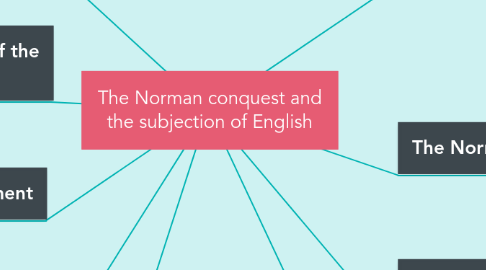The Norman conquest and the subjection of English
da Remaz fahad


1. The Origin of Normandy
1.1. Over the following century and a half (after duke Rollo), the dukedom reached a position of great influence, over-shadowing at times the power of the king of France
2. The year 1066 (the story of the invasion)
2.1. In 1066, after a reign of 24 years, the English King, Edward the Confessor, died childless. England was faced with the problem of selecting a successor.
3. The Norman Settlement
3.1. One of the most important consequences of William's victory was the introduction of a new nobility (French nobility in England). Many of English higher class had been killed on the field at Hastings.
4. . The attitude toward English
4.1. English was considered the uncultivated tongue, the language of a socially inferior class. It was even a disgrace to be called an Englishman.
5. Knowledge of French among the Middle class
5.1. Equally, French was found somewhat farther down the social class even if their mother tongue was English
5.2. Thus, in the year 1204, the period preceding the lose of Normandy, there were a considerable number of French/English bilinguals.
6. The Historical period of Middle English
6.1. 1.Old English 449-1100
6.2. 2. Middle English 1100-1500
6.2.1. The beginning and ending dates of the Middle English period, though somewhat arbitrary, are two points in time in which changes in English were particularly noticeable
